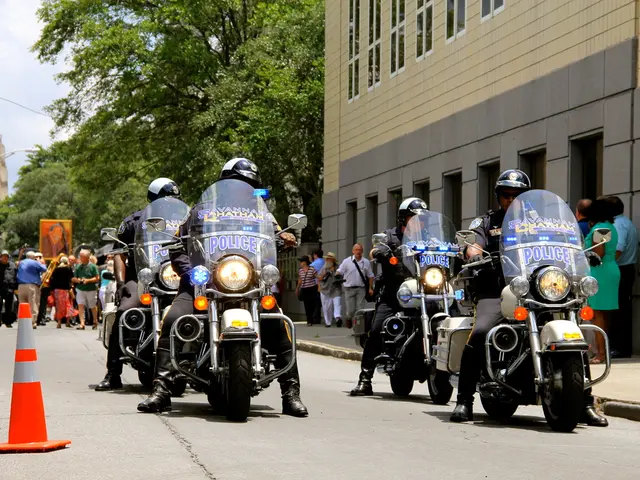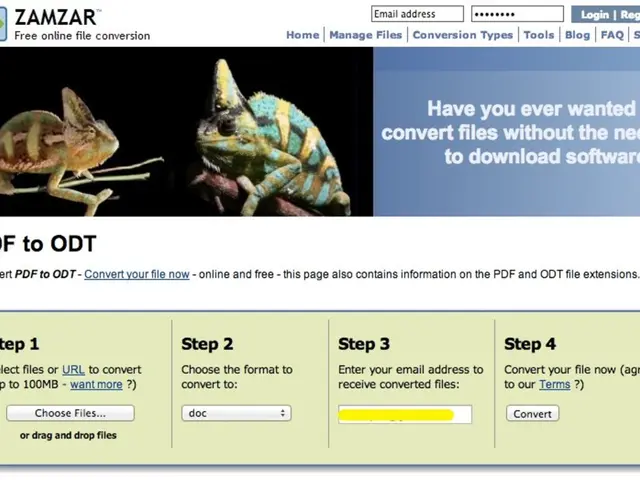Lottery Authority in California Remains Unwavering Amidst Chaotic Mega Millions Scenario
In a series of surprising developments, two significant legal disputes have emerged in California regarding the ownership of winning lottery tickets. These cases, involving Faramarz Lahijani and Mega Millions, as well as Edwin Castro and Powerball, highlight the complexities and potential pitfalls of claiming lottery prizes.
Faramarz Lahijani, a Mega Millions winner, is embroiled in a legal battle with the California Lottery, claiming to possess two winning tickets from the December 8, 2023, drawing. However, the physical tickets are missing, leading to a unique set of challenges. Key considerations in such cases include proof of ownership, authenticity, and chain of custody of the tickets.
The plaintiff must provide substantial evidence to establish their claim, such as receipts, records from authorized sellers, or digital transaction proofs that confirm ticket purchase and ownership. Courts will also scrutinize efforts to establish authenticity, including audit trails of electronic or scanned copies, or validation through the lottery commission’s records. Demonstrating how the tickets were stored or controlled before the claim is crucial, especially if multiple winning tickets are involved.
The outcome of Lahijani’s lawsuit could impact the California Lottery’s procedures for verifying claims, preventing fraudulent claims, and contractual obligations. Similarly, the Powerball case, which saw Edwin Castro declared the official winner while Jose Rivera alleged his ticket had been stolen and filed a lawsuit, has shed light on the importance of protecting lottery tickets from theft, loss, damage, or destruction.
The appeal of lotteries lies in the potential for a massive payout with minimal investment. However, these disputes underscore the necessity for transparency and fairness in all gaming activities, ensuring public trust remains intact. California has a history of jackpot disputes, involving technical malfunctions, disagreements over game rules, and claims of fraud or tampering.
Interestingly, the debate over online gambling in California continues, with the state currently offering legal options like sweepstakes casinos. These platforms allow gamblers to play casino-style games such as slots and table games using a virtual currency system.
The Lahijani-California Lottery legal dispute is not the only high-profile jackpot dispute in California. In a recent case involving a record-breaking Powerball jackpot, Edwin Castro was declared the official winner, while Jose Rivera alleged his ticket had been stolen and filed a lawsuit. Rivera’s lawsuit was dismissed due to his lack of physical possession of the winning ticket.
In more recent news, there were no jackpot winners in Tuesday night's Mega Millions drawing. However, two significant winning tickets were sold in California: a $1.4 million ticket at a 7-Eleven located on Norwalk and Artesia Blvd., and a $26.7 Million Mega Millions Lottery ticket was sold at Eddie's Liquor Jr. Mart in Bellflower.
As these cases demonstrate, the absence of the physical ticket intensifies the legal burden on the claimant to prove their entitlement through credible, documented evidence and compliance with lottery rules. Courts and lottery commissions typically require strict adherence to procedures due to the high risk of fraud or error in such disputes.
[1] Fleming, K. (2022). How to Prove Ownership of a Lost Lottery Ticket. [online] Available at: https://www.cardplayer.com/poker-news/24343-how-to-prove-ownership-of-a-lost-lottery-ticket
[2] Lahijani v. California Lottery (2023). Superior Court of California, County of Los Angeles.
[3] Castro v. California Lottery (2022). Superior Court of California, County of San Diego.
- The community news is abuzz with the ongoing legal battle between Faramarz Lahijani and the California Lottery, highlighting the intricacies of proving ownership of lost lottery tickets, especially in situations where physical tickets are missing.
- The complexities of eventualities like these are further exemplified in the Edwin Castro and Jose Rivera cases, which emphasize the relevance of maintaining the environment for ticket protection and preventing theft, loss, damage, or destruction to ensure fair and transparent lotteries for all.
- The ongoing case of the Mega Millions winning tickets sold in California serves as a reminder of the importance of having credible, documented evidence to prove entitlement and adhering to strict lottery rules, considering the growing popularity of unconventional forms of entertainment such as casino-and-gambling, including online platforms like sweepstakes casinos.







